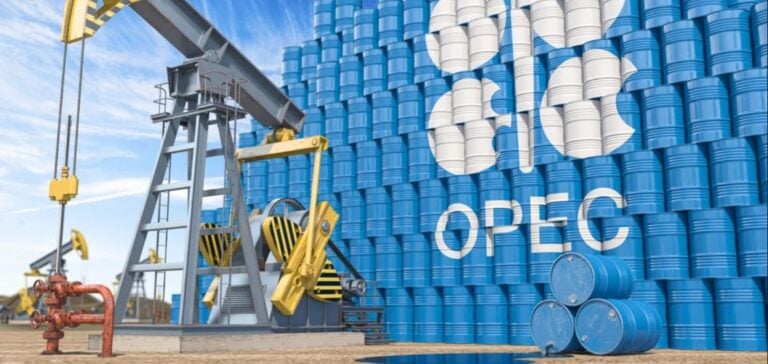Global oil demand continues to grow but at a slower pace than initially anticipated. In its latest monthly report published on Wednesday, the Organization of the Petroleum Exporting Countries (OPEC) adjusted its forecasts downward for 2024 and 2025.
The report estimates that global oil consumption will reach **103.82 million barrels per day (mb/d)** in 2024, up from 102.21 mb/d in 2023. For 2025, consumption is expected to be **105.27 mb/d**, representing a downward revision of 210,000 barrels per day for 2024 and 90,000 barrels per day for 2025 compared to earlier estimates.
Adjustments Based on New Data
OPEC attributes these revisions mainly to updates in data for the first three quarters of 2024. These adjustments reflect changes in demand across both OECD and non-OECD regions.
According to the report, non-OECD economies, particularly **China and India**, remain the primary drivers of oil demand growth. China, buoyed by steady economic growth, plays a crucial role, supported by India’s performance and other emerging economies.
Conversely, within OECD countries, the situation is mixed. **The Americas** continue to act as a positive factor with robust demand, while Europe provides more moderate contributions. Meanwhile, the Asia-Pacific region within the OECD sees stagnant demand.
Impact of OPEC+ Decisions
In early December, OPEC+ (comprising OPEC and its allies) extended its oil production cuts to maintain market balance. This decision, anticipated by observers, had a limited impact on crude prices, already influenced by geopolitical factors.
For instance, recent uncertainties in Syria—though not a major oil producer—have raised concerns about global supply due to heightened regional tensions.
Outlook and Challenges
Despite these revisions, OPEC remains optimistic about overall demand growth, driven by emerging economies. However, these forecasts reflect global economic uncertainties and the challenges posed by energy transition policies in various regions.






















